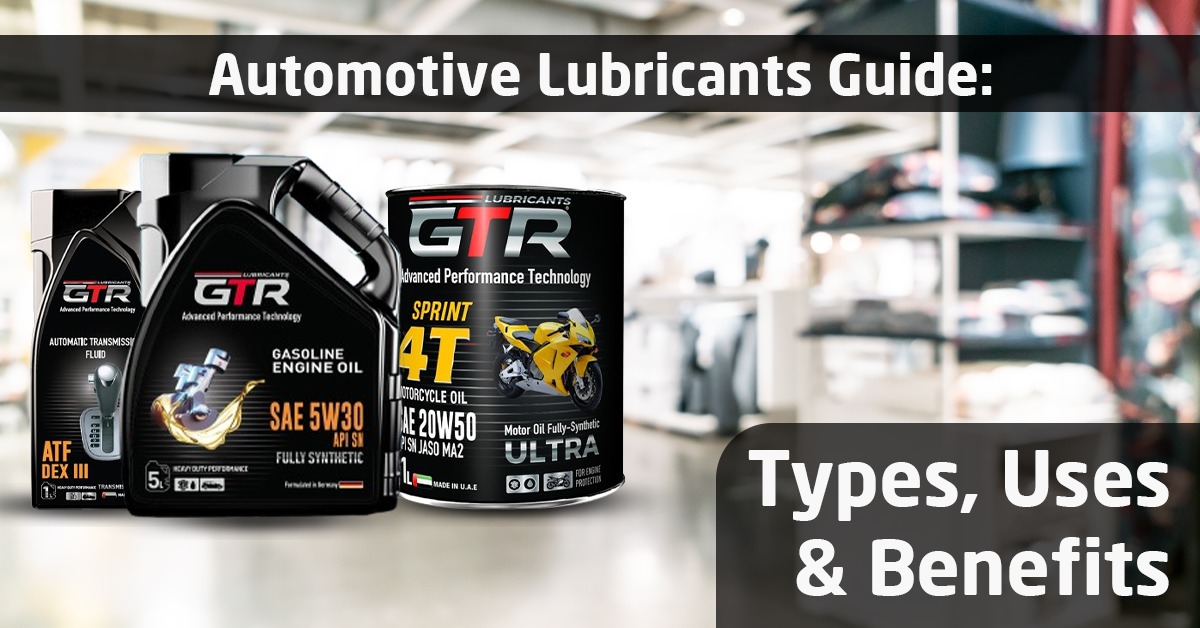Introduction
Did you know that nearly 40% of engine failures are linked to poor lubrication? Whether you own a diesel truck, a family car, or manage an industrial fleet in Canada, the choice of automotive lubricants can make or break your engine’s performance. Many drivers and distributors struggle with questions like: What type of oil is best for diesel engines? Can you use diesel oil in a gas engine? Which automotive lubricants suppliers should I trust in Canada?
This complete guide is designed to simplify those questions. From types of lubricants to their uses and long-term benefits, we’ll walk you through everything you need to know about automotive and industrial lubricants.
If you’re in Canada and looking to become an automotive lubricant distributor, order bulk lubricants, or simply make smarter choices for your vehicles, this guide is for you. By the end, you’ll know how to pick the best diesel engine oil, explore high-performance lubricants, and avoid costly mistakes.
“The road to success is built on small, consistent decisions — and choosing the right oil is one of them.”
Understanding Automotive Lubricants
Automotive lubricants are specialized oils and fluids designed to reduce friction, prevent wear, and keep engines running smoothly. They’re the lifeblood of modern vehicles.
Types of Automotive Oils and Lubricants:
- Engine Oils – For petrol and diesel engines (synthetic, semi-synthetic, mineral).
- Transmission Oils – For smooth gear shifts and performance.
- Hydraulic Oils – For brakes and steering.
- Graphite Lubricants – High-temperature resistant, ideal for industrial and automotive uses.
- Coolants & Greases – To prevent overheating and reduce friction.
Why They Matter:
- Protect against corrosion.
- Improve fuel economy.
- Extend vehicle lifespan.
- Reduce emissions.
Types of Automotive Lubricants: Explained
1. Engine Oils: Gasoline vs Diesel
- Best Diesel Engine Oil – Provides higher viscosity and detergents to handle soot.
- Gasoline Engine Oils – Lower ash content, lighter viscosity for spark-ignition engines.
- FAQ highlight: Can you use diesel oil in a gas engine? – Yes, but only in older engines without catalytic converters. For modern cars, it may damage emissions systems.
2. Industrial Automotive Lubricants
Used in construction fleets, transport trucks, and manufacturing. They provide:
- High thermal stability.
- Better load-carrying capacity.
- Extended drain intervals.
3. High Performance Lubricants (e.g., Motul Oil NZ)
Designed for sports cars, racing engines, and high-stress vehicles. Known for:
- Consistent performance at extreme temperatures.
- Better oxidation resistance.
4. Graphite Lubricants
- Top 10 Automotive Graphite Lubricants are widely used for heavy-duty machinery.
- Heat-resistant, ideal for Canadian winter conditions.
Benefits of Using the Right Automotive Oils and Lubricants
- Enhanced Engine Protection – Prevents metal-to-metal contact.
- Longer Oil Change Intervals – Saves cost in bulk orders.
- Better Fuel Efficiency – Reduces resistance.
- Extended Vehicle Life – Protects seals, bearings, and pistons.
- Sustainability – Cleaner emissions, eco-friendly.
Choosing Automotive Lubricants Suppliers in Canada
When searching for automotive lubricants distributors in Canada, consider:
- Product Range – Engine, hydraulic, gear oils.
- Certifications – API, SAE, OEM approvals.
- Bulk Supply – Reliable logistics for large orders.
- After-Sales Support – Technical training and distributor assistance.
Pro Tip: Partner with global exporters and suppliers to secure bulk automotive lubricants at competitive rates.
Common Mistakes to Avoid
- ❌ Using diesel oil in modern gas engines.
- ❌ Ignoring OEM recommendations.
- ❌ Extending oil intervals beyond manufacturer limits.
- ❌ Buying from non-certified lubricant distributors.
FAQs – People Also Ask
Q1: What are the best lubricants for automotive engines in Canada?
High-performance synthetic oils (like Motul, Castrol, and Shell) are preferred due to Canada’s temperature extremes.
Q2: Can I use diesel oil in a gas engine?
Only in older vehicles without catalytic converters. For newer models, stick to recommended gasoline engine oils.
Q3: What is the difference between automotive and industrial lubricants?
Automotive lubricants are designed for passenger and commercial vehicles, while industrial lubricants serve heavy machinery and fleets.
Q4: Where can I buy bulk automotive lubricants in Canada?
From certified automotive lubricant distributors and suppliers, both local and international.
Comparison Table: Diesel vs Gasoline Engine Oils
| Feature | Diesel Engine Oil | Gasoline Engine Oil |
| Viscosity | Higher | Lower |
| Additives | More detergents | Fewer detergents |
| Emission System Impact | Safe for diesel | May harm in diesel |
| Fuel Efficiency | Moderate | High |
| Best For | Heavy-duty trucks | Cars & SUVs |
Conclusion
Automotive lubricants are not just oils — they’re the lifeline of your vehicle’s engine. From engine oils and hydraulic fluids to graphite-based lubricants, the right choice ensures performance, efficiency, and longevity.
If you’re in Canada and considering becoming an automotive lubricant distributor, or you’re looking to order bulk lubricants, this guide provides the foundation you need.
Take the next step today – partner with trusted suppliers and bring high-performance lubricants to the Canadian market.

